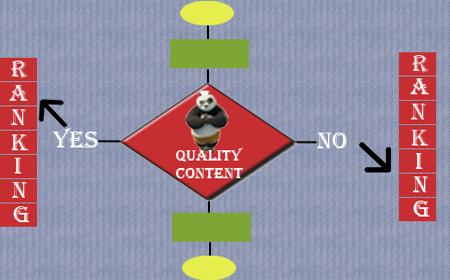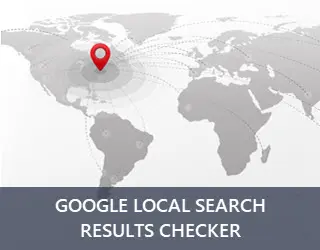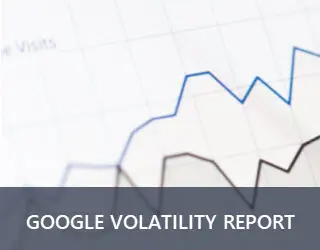How to Do Search Engine Optimization in 2014 (Part – I): Learning from Panda Updates in 2013
Posted On : February 18th, 2014 By : Dillip Kumar Mohanty To : Google PANDA, Google UpdateAs far as level of activity is concerned, 2013 has been the most ground shaking one than 2011 & 2012. In 2013 we have seen Panda integrated to main ranking algorithm, two updates in Penguin series & the most dramatic one; Hummingbird along with many other types of known & unknown updates. Through these series of updates & especially with Panda & Penguin; Google is becoming strong spamivore acting aggressively against spam and supporting good pages at the same time. As far as SEO is concerned; yes this sector has been greatly affected by all these updates and never to be the same in future. There is no place for those who still think SEO as a bunch of rules regarding certain technical on-page changes & getting as much back-links. SEO has been evolved more like a creative marketing process.
Panda: Past, Present & Future
I never feel Panda as a challenging factor to SEO rather it is a true savior for those relentlessly offering better things to visitors in terms of quality content, information or experience. Since its first release on 24th Feb. 2011, Panda has mainly been targeting low quality or swallow or thin content. Till March 2013, it was acting like a filter and periodically got updated almost 25 times. In March’13, Google announced that Panda was being integrated to their main algorithm & its effect would be less visible. But in June’13, Matt Cutts declared that Panda was being updated month-wise but the update was rolled out slowly throughout the month.
What is the big deal? Hmmm…..
- This is really a big problem as now Google is not going to announce any update in Panda series
- As the update will be rolled out throughout a month, you are not in a position to know whether your site may be affected by Panda or any other issue.
Previously it was easier to know about the impact and hence was easier to focus on the right part to solve the issue. So, what once should do now? Well, prevention is better than cure. So, it is better to follow a Panda-proof content strategy. In SEO, Panda is synonymous to quality content.
Basically quality content means;
- It should be informative
- Content should be unique
- Content should cover the pros & cons of the topic addressing the whole scenario
- It should be original not to be copied or scraped from other places
Answering one of the questions related to Panda in a video, Matt Cutts advised that content should be something like that can be published in magazines or that friends and users would share with others. That part smells like Google might be majoring social shares or likes of your content or users’ search pogosticking behavior. But I personally feel Google means more when it comes to quality.
Fortunately, I have had chance to analyze many sites from different niches & of different sizes affected by Panda severely. And unfortunately, either lack of proper knowledge about Panda partially due to popular misconception about Panda effect or in desperation to get back their traffic, clients were in a false position to believe that they might regain their previous ranking position. I’m not saying that it is impossible to solve Panda issues but it can’t be guaranteed for all sites. Some sites just fell to this due to their inherent quality structure.
True nature of Panda
The number of updates in Panda series shows how serious Google is with this. Assessment of quality is really a process of utmost difficulty when it has to be carried out by algorithmic procedure. As it is all about quality and Google knows that providing quality results to users is the only way to sustain in its position; so Google has been doing series of developments to enhance the capability of Panda to assess the quality in true sense. It is the real test of the effectiveness of artificial intelligence and I hope Google will continue its experiments in this regard in future and that’s why Panda is still not fully integrated in its search algorithm with complete automation mode.
Google with Panda update, has shifted its approach to measure quality. It is a big leap in its policy of counting much on link popularity in its search algorithm. That is the main reason why many sites need complete redesigning of their whole content to infuse quality in it. This is why I feel that for many big sites it is somewhat difficult to regain their position though they can achieve some improvement. For example, if yours is a case of duplicate content issue, you can achieve your previous ranking by removing those contents but if you get affected due to thin content issue, then it is really a big trouble. And I think many sites have been affected due to this thin issue.
Two critical aspects of quality that every site owner should know are;
- Quality is an approach not a tag like thing that can be placed in all pages overnight
- Quality is inherent to a site’s content structure.
Regarding Panda, Google is well clear about two things;
- Size doesn’t matter
- Popularity doesn’t matter
Popularity never means quality and I think this the most common misconception. If that were the case, then big sites like Hubpages.com or About.com would not have fallen to Panda. Popularity can be achieved in many ways and quality is just a part. Though it is one of the prime requirements but can’t be taken as the only one reason. And Panda has played well in this grey region of popularity to churn out it from quality.
So, how to build Panda-proof content strategy? I’ve prepared the following quick recipe;
- Think about the users’ need before preparing content; what type of content they want to read
- Try to infuse uniqueness to your content
- Be original. Never follow or copy others’ content
- No page should contain content, whole or partial, from other pages. Multiple pages with same or partially same content are considered to be duplicate pages.
- Even due to URL parameters, many duplicate URLs are generated automatically. Keep a clean URL structure. Periodically check and compare the original numbers of pages in the site and number of pages Google has cached by using site command. If you find more pages cached by Google, then it may drag you to Panda.
- Remove duplicate pages or noindex them or disallow them in robots.txt file.
- Each page should contain unique and quality material for users. Pages with similar content or having no quality material for users are treated as thin pages.
- Try to update all important pages periodically with new information
- Add infographics, images, videos etc in every page
- Add rich snippets in important pages
- There should be proper balance among page’s content, title and meta description
- Don’t over optimize each page by overcrowding titles or headings or contents with exact keywords.
- Frequently give links to high quality external sites from within the content
So, if you are not here to just make quick buck; interested in sustainable development of your business by acquiring real customers in genuine way; you shouldn’t be worried about Panda. Rather Panda helps you by clearing the path from sites with vested interested. So, love Panda!
- Suvaance 10th Anniversary Celebration - June 8, 2022
- Video Optimization For Google Search: Everything You Need To Know - April 6, 2022
- Impact of Reviews on Ranking & How to Deal with Negative Reviews? - November 7, 2021











It’s nice to find an article having in-depth information regarding how to do SEO in 2014, thanks for providing such beautiful information. I do agree with you that Google Panda will be more effective this year with many updates in it from Google.
Webmasters are now aware about the Panda issue & they are concentrating more on quality of contents so in future time will come when it’ll be difficult for Google to again differentiate between high quality contents. Am sure that Google will have some solutions at that time with Panda updates but I think it’s best for webmasters to bring innovative & well researched high quality contents to get good ranking in Google search results.
Thanks for your thoughtful comment, Bijaya. As I’ve already mentioned in the post that Panda is a big game changer for Google and the top guys there know the importance of refinement of this single algorithm update to stand up to its true intention ie; to separate out the real quality sites or contents from billions of similar but low quality contents. So, far I don’t think they are 100% success in it and apart from that defining certain line between low quality and high quality content is really very difficult when the difference between two contents is just marginal in quality wise. So, They have to explore different possibilities to find out definite solution to address the issue mathematically and you will see so many updates in this series.
Thanks for sharing this excellent article on how to do SEO in 2014. I agree with your point that Panda is becoming more effective in the year with the continuous number of updates given out by Google